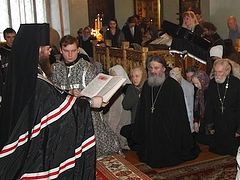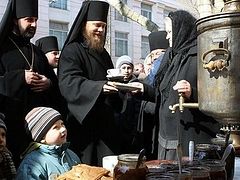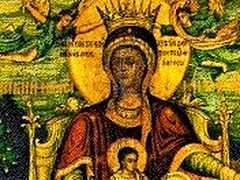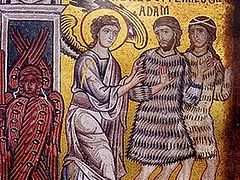Source: Mystagogy. The Weblog Of John Sanidopoulos
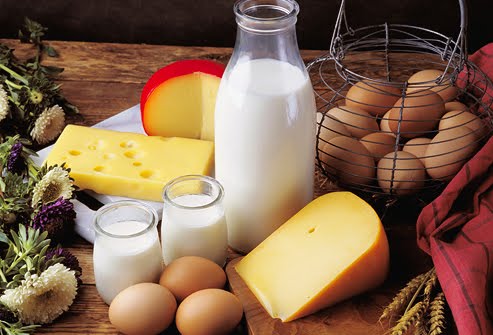
Cheesefare Sunday received it's name because the previous week we did not eat meat, but only dairy products, such as milk, cheese, etc., as well as eggs and fish.
Many find this rule of the Church to be "unreasonable", saying: "How is milk of a lamb allowed but not the meat of the lamb, since milk is produced by the lamb? How are eggs allowed and not chicken, since the first are produced by the second?"
Of course these people would have a point, if we maintained that the meat of the lamb or fowl was tainted and for this reason we do not eat it. Then we should not eat what is produced by them, since these also would be tainted. But through our Church no food is tainted. This is what is taught by the apostle Paul in his First Epistle to Timothy (4:3-5). Rather the Church simply divides food into greater or lesser consumption towards self-restraint and, at certain times, allows the one and forbids the other.
An accurate response towards those who say the above has been answered by Athanasios of Parios, a wise and important teacher of the Church, when he writes to a certain doctor:
"You criticize your friend because during Cheesefare he eats eggs, yet does not eat the chicken which gives birth to the egg...? But what similarity can be made between an egg, which is not alive, and a chicken, which is alive? The egg is much lower than the fowl. And as proof I appeal to your own opinion, that is, the opinion of a doctor. To whomever is sick and begins to approach the stages of recovery you prescribe as food small and delicate chicks and not tough fowl. For what reason do you do this? Because, you say, the fat and greasy foods will harm him who now begins to recover from his sickness, since his stomach does not have the strength to endure and digest heavy foods. If therefore there is a difference between a small chick and a big chicken and the chick is, as a food, much lower in strength than the chicken, and no doctor has ever said that the egg of a chick or chicken is the same food or equally suitable for the sick, is it not clear that unreasonable are those who criticize us for eating eggs and not fowl?... They criticize us also that we eat olives, but not olive oil, even though inside the olives is the olive oil. But within grapes is wine also. Yet however many grapes we eat we will not get drunk; at most we will become stuffed in our stomachs...."
Besides this, it is well-known that with olive oil we are able to cook innumerable and delicious foods, though olives are considered xerophagy (dry foods). Xerophagy is to not eat cooked foods, but unprepared ones, such as bread with olives or dry fruit, etc.

